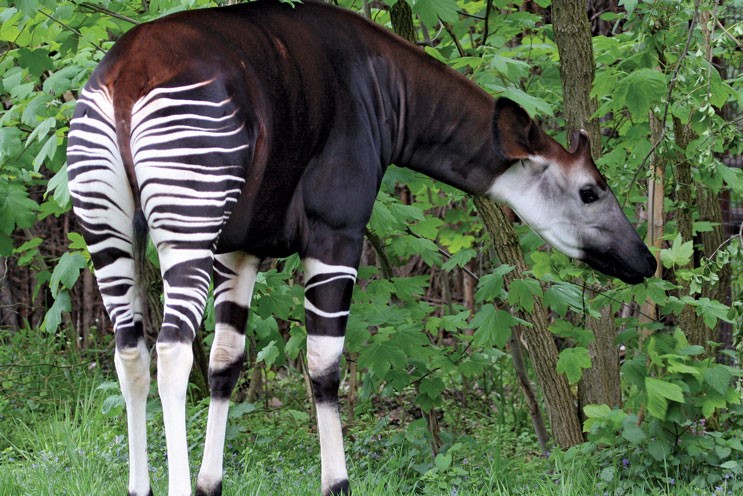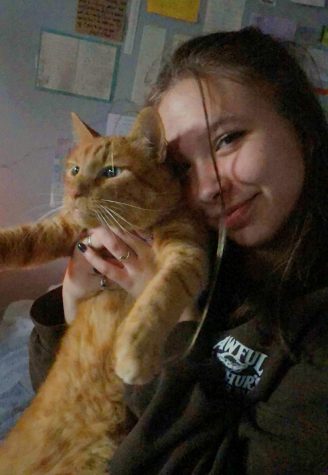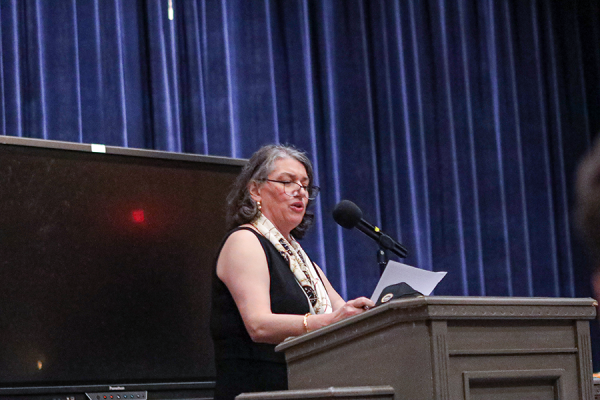Extraordinary Endangered Animals: Okapi
The okapi is nicknamed the “African unicorn.” Credit: Daniel Jolivet – https://www.flickr.com/photos/sybarite48/7973333500/, CC BY 2.0, https://commons.wikimedia.org/w/index.php?curid=65399174
June 1, 2021
The okapi, nicknamed the “African Unicorn”, is the only living relative of the giraffe. It looks like a cross between a zebra and a deer, with stripes on its legs, and knobby horns on its head. It is a solitary animal that lives primarily in the rainforests of the Democratic Republic of Congo. Today, the okapi is endangered.
Okapis are very elusive animals because they prefer to be alone. However, sometimes okapis meet in groups to groom, eat, and play. Okapis also meet up to mate. Before mating, the male okapi marks plants with urine and the female defecates in the same places. They then rub their necks and mate. After giving birth, okapi mothers communicate with their offspring through infrasounds. These are noises that are undetectable to humans.
Some interesting facts about the okapi are as follows. First, okapis have scent glands on their feet that are used to mark their territory. Next, their dark blue tongue can be up to 18 inches long. These long tongues allow okapis to wrap around leaves in order to feed themselves. Finally, the fur of the okapi is thick and oily. This lets it stay dry in its tropical rainforest habitat.
These animals are endangered for multiple reasons, a big one being habitat loss. A significant amount of their rainforest home has been lost due to development, agricultural practices, oil drilling, and logging.
In addition to habitat loss, hunters have taken out large numbers of okapis. Poachers kill these animals for their skin and meat. A militia group killed 14 of them at a conservation center in the headquarters of the Okapi Conservation Project in 2012. Because there is so much civil unrest in the Democratic Republic of Congo, people aren’t very focused on the plight of the okapi, and the oversight of wildlife protection laws becomes exceedingly difficult.
Current conservation efforts to protect the okapi include the Okapi Conservation Project, founded in 1987. This project supports the Okapi Wildlife Reserve, which is home to 5,000 okapis. It also works with the Institute in Congo for the Conservation of Nature to supply rangers who protect okapis with resources. The responsibilities of the rangers include capturing poachers before they have the chance to harm the okapis as well as keeping track of agricultural expansion that has the potential to harm okapi habitats.
The Zoological Society of London and the International Union for the Conservation of Nature have also teamed up to implement a strategy that reduces illegal activity that could lead the okapi to extinction. Zoos all over the world have participated in breeding efforts to save the okapi as well.
Without okapis, many other species that rely on them would face repercussions. For example, leopards rely on okapis as a source of food. They also make sure that certain vegetation does not become overgrown. Also, as John Lukas, the founder of the Okapi Conservation Project said, “If the okapi were to go extinct, it would be a great loss to the people of DRC, the okapi is their symbol of their bountiful biodiversity and wild places, and as a symbol of ICCN, it would be a failure that would be difficult to overcome and a foreboding for the other endangered species that require protection to survive such as gorillas, chimpanzees, and forest elephants.”
To help save the okapis from extinction, you can make a donation to the Okapi Conservation Project. It doesn’t have to be a huge amount of money, just $15 supports one ranger per day to protect okapis and their habitat, and $50 provides a ranger and his family with a month of medical care. Donations also give community assistance and education to the people living in the Okapi Wildlife Reserve.
Sources:
https://www.nationalgeographic.com/animals/mammals/facts/okapi















